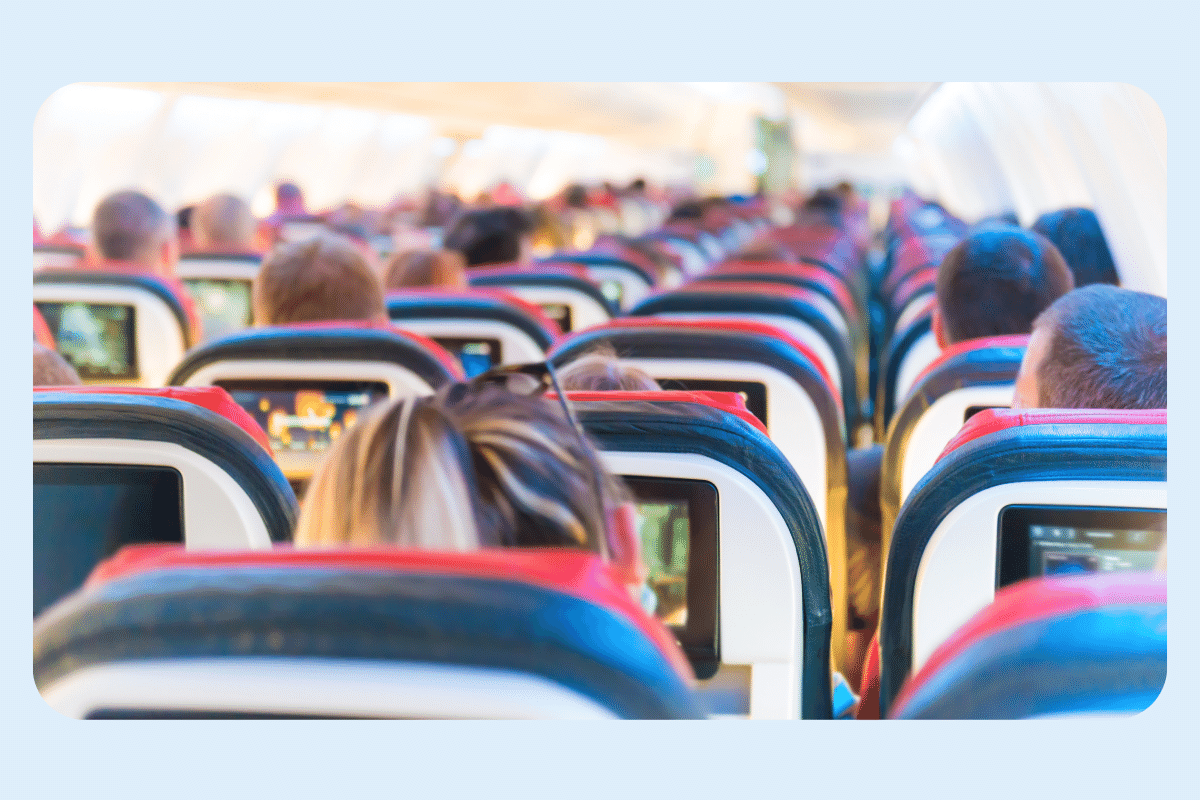
Mobile Travel Technologies
- Sectors/Markets
- Africa Advisory
- Transactions
- TC Magister
Mobile Travel Technologies acquired by Travelport
Travel technology leaders making opposite bets as industry seeks to transform: magister advisors advises mobile travel technologies ltd on its sale to travelport..
Within days, two of the largest travel technology providers announced strategic, but radically different, acquisitions: Tavelport announced its acquisition of Mobile Travel Technologies (MTT) and Amadeus announced its acquisition of Navitaire.
Multiple structural factors are at work together: traveller centric mobile and social platforms driving channel shift, the squeeze from airlines on global distribution systems (GDS) fees, the challenge to travel management companies and distributors to remain relevant in a fully connected world are all forcing the large travel technology providers to consider their strategic direction and options.
With the acquisition of Navitaire, Amadeus has taken a ‘standard’ route for an incumbent: increase economies of scale, expand immediate TAM by moving from high end into mid-market, and invest in an area that is well understood internally.
Travelport, however, has taken a bolder approach, continuing to ‘redefine travel commerce’ by investing in what is rapidly becoming the most important channel: mobile. The acquisition of MTT comes on the back of Travelport’s previous investment in enett (a payments platform for the travel industry) and enhances its strategy to differentiate from other distribution systems by providing a leading B2B platform for merchandizing and travel commerce.
In acquiring MTT, Travelport not only gained a best in class SaaS platform for airlines, hotels and travel companies to provide traveller facing mobile applications, but also what we believe to be the largest and deepest pool of mobile and cloud specialist talent in the sector — a potential strategic advantage ‘across the board’, for both Travelport and its customers.
Congratulations to the MTT team and Travelport.
Find out more about dai magister, related posts.

AI-Powered Climate Risk Assessment Tools – A $31bn market
According to research, the global climate risk assessment market is projected to reach $31.2 billion by 2030, growing at a compound annual growth rate (CAGR) of 17.5% between 2024 to 2030. This growth is fuelled by the rising adoption of AI and machine learning technologies in climate risk modelling and assessment.

Private Equity’s Resurgence in Tech M&A
The second quarter of 2024 marked a turning point, with PE’s strongest deal-making period in two years. PE firms closed 122 acquisitions valued at an impressive $160 billion. While this still pales in comparison to the high-water mark of Q3-2021—when 232 deals worth $300 billion were completed—it represents…

Green Steel Technology – A $89 billion Revolution
According to Future Business Insights report, the global green technology and sustainability market for steel production is projected to reach over $89 billion by 2032, growing at a compound annual growth rate (CAGR) of 20.9% from 2024 to 2032. This remarkable growth is driven by increasing environmental regulations, consumer demand for sustainable products, and the steel industry’s…

The Alarming Scale of Global Food Waste: A £1 Trillion Crisis
The magnitude of the global food waste crisis is nothing short of alarming. Approximately one-third of all food produced worldwide—a staggering 1.3 billion tonnes—ends up in bins and landfills annually. This equates to roughly £1 trillion worth of food lost or wasted every year. In the UK alone, the scale is equally sobering: households and businesses squander around 9.5 million tonnes of food annually, with a value exceeding £14 billion.

Carbon Capture part II: Utilisation and Sequestration
Currently, the annual utilisation of CO2 stands at approximately 230 million tonnes, with the majority being channelled into urea production for the fertiliser industry and enhanced oil recovery. However, this figure falls significantly short of the volume we must capture by 2050 to achieve net zero emissions. To address this shortfall, a substantial increase in utilisation methods and sequestration is required.

Carbon Capture Upstream: Key to Net Zero
Despite the increased adoption of renewable energy and growing maturity of several key decarbonisation pathways, CO2 emissions peaked in 2023 and are projected to continue rising for decades to come. Even governments of countries with firm climate commitments, such as the UK which pledged to achieve zero-carbon electricity by 2035, will continue to build new natural gas-fired power plants to ensure reliable power supply.

$25bn Watertech Start-Up Ecosystem offers Significant Potential for Growth
The urgency of the water crisis is likely to drive further investment and innovation in the coming years. With freshwater demand projected to surpass supply by 40% by 2030, there is a clear and growing need for innovative water solutions. This gap between supply and demand represents a substantial market opportunity for companies that can develop effective technologies to address water scarcity, improve water quality, or enhance water use efficiency…

AI: The Unlikely Hero in Data Centre Sustainability?
As the demand for AI surges, so does the energy consumption of data centres. It’s predicted that by 2026, data centre electricity consumption could reach 1,000 terawatt-hours, equivalent to Japan’s total annual usage. However, AI itself may hold some of the keys to addressing this challenge. Our blog delves into how AI-driven solutions are transforming data centre operations, from optimising power usage to enabling smart grid integration…

Are NPUs the Key to Disrupting Nvidia’s AI Dominance?
NPUs are emerging as the solution of choice in an AI semiconductor market bifurcating into training and inference applications. These specialised chips offer significant advantages in terms of size, cost and energy efficiency for AI processing tasks. With projections indicating the edge AI inference device market will reach c$50bn by 2026, this presents a considerable opportunity…
GET IN TOUCH
Privacy overview.

11 Travel Technology Trends Emerging in the Tourism Industry in 2024
With widely available vaccines and lower numbers of Covid-19 cases, travel is slowly returning to its pre-pandemic levels , although travel risks and disruptions are still present. Extreme weather conditions, political instabilities, and hardware malfunctions. With the emergence of artificial intelligence and mobile devices, customers expect a much greater level of personalization than ever before. These are the main reasons why the travel industry is consistently striving to find new and innovative ways of integrating breakthrough technologies into its operations.
Boost your travel business with the right technology
You will learn:, state of travel industry in 2024, key travel trends and technologies, customer experience with ai and ar, automation and efficiency in travel business, strategic technology investments, what is travel technology, impact of technology on the travel industry, why is technology important in the tourism and travel industry, key statistics and forecasts for travel technology in 2024, what are the latest technology trends used in the travel industry, 1. advanced travel search engines, 2. ai dynamic pricing engines, 3. dynamic scheduling systems.
- 4. Internet of Things
- 5. Augmented Reality and Virtual Reality
6. Contactless payments
- 7. AI chatbots
8. Big Data
9. 5g and fast wi-fi networks, 10. recognition technology, 11. cybersecurity practices, future of travel technology.
Travel technology is an umbrella term to describe the multitude of different uses of modern technology such as artificial intelligence, augmented reality and mobile technology within the fields of tourism, travel, and hospitality industry.
Technology solutions can be deployed at virtually every point of travel in one form or another, significantly influencing the overall customer experience.
Do you remember buying an airline ticket from a real human being?
Neither do we.
We all got used to the presence of modern technological advancements in the travel industry.
There are many more ways in which modern digital technology influences and improves the travel industry.
The ultimate motivation behind implementing these technologies is pretty straightforward. It as always boils down to increasing profits and expanding business, which in turn has a positive impact on customer experience.

First and foremost, it leads to improved efficiency and decreased operating costs.
In fact, it is a win-win situation for online travel agencies, airlines, as well as the travelers.
For companies, digital transformation in travel industry means better margins and healthier cash flows. For customers, in turn, it means many more attractive tourist destinations and lower prices.
[Read also: What’s the Future of Digital Transformation and Its Trends? An Expert’s Point of View ]
These days, almost everyone has a smartphone or other mobile device, granting access to an immense choice of online services.
It is thus crucial for travel companies to allow their customers to book their trips, check-in for their flights, and find information about their destinations online.
Even though we are taking all of these modern utilities for granted, they are still a key factor for improving user experience in the travel industry. As a result, they have to be improved and optimized consistently.
Latest travel technology trends refer to the innovations and digital solutions that are transforming the travel and tourism industry. Some of the trends include online travel booking, virtual tourism, mobile travel apps, chatbots and artificial intelligence. Here are some of the latest quantitative statistics and forecasts on travel technology trends:
- Generative AI tools like ChatGPT will become more popular for trip planning, as half of travelers surveyed are interested in using them to find the perfect stay.
- Destination “dupes” and “set-jetting” will continue to be in vogue as travelers seek affordable alternatives to crowded or expensive places, or follow the locations featured in their favorite shows or movies¹.
- Global travel app revenues will grow by 17 percent in 2024, reaching nearly $400 million.
- The share of digital ad spending in the travel and leisure industry will reach 14.5 percent in the United States and 13.9 percent in the United Kingdom in 2024.
- The world’s leading online travel agencies (OTAs) will spend $2.3 billion on Google advertising in 2024.
- The global travel and tourism market will shift from 66 percent offline sales channels to 54 percent online sales channels from 2017 to 2027.
- The global travel technology market will grow by approximately 45 percent from 2020 to 2026, reaching $12.5 billion.
- The Asia-Pacific region’s recovery will be evident as travelers flock to destinations such as Taiwan, Thailand, and Australia, which have successfully contained the pandemic and reopened their borders.
- Travelers will need to be more creative and flexible in their destination choices, as travel restrictions and regulations may change frequently due to the ongoing health crisis.
- Travelers will opt for carry-on only luggage with a twist: they will use smart luggage that can track their location, charge their devices, and weigh themselves.
- Travelers will rely more on their travel advisors, who can offer more than just flights and hotels, but also personalized experiences, insider tips, and access to exclusive benefits.
Sources: Statista , Travel + Leisure , Smart Flyer .
There are plenty of different technology trends that are shaping the future of the travel industry.
Below, we’ve listed 11 of the most important travel industry trends.

Let’s compare here travel search engines to the Google search engine.
On the surface it is a pretty simple concept. A user introduce certain keywords of their interest and the search engine matches the most relevant results.
But what if you are looking for a hotel room in a specific location with certain room facilities? A simple Google search won’t be able to compute so many details.
This is where metasearch engines enter.
Metasearch engines are the tools that send search queries to many sources and organize results in a comprehensive list.
The main objective of such sites is to aggregate results in a unified way, so that the client can access the maximum number of available options on the market. It allows users to have a reliable source of objective information and to compare offers with one another.
Results presented by metasearch engines are obtained with less amount of exertion on the end user side.
Instead of searching one single search engine to find a specific website or browsing through different services, the right amount of data can be obtained by a metasearch engine.
It definitely improves the user experience. Ans save their precious time.
In the tourism industry, metasearch engines are used to search through and compare travel agencies’ offers to provide clients with as many suitable options as possible.
Nowadays, these services have grown quite robust. Many provide smart price alerts or tempting last-minute deals.
When developing a metasearch engine for an online travel agency , lodging reservation service, hotel booking engine , or a hotel inventory management software key factors are performance and scalability .
A team of Stratoflow Java developers when tasked with improving the travel search engine for a major hotel bookings aggregator decided to extract the availability search into a separate cache layer based on an in-memory data grid (IMDG) platform. It allowed for a major decrease in SQL database usage, as well as improved efficiency.
Interestingly, our client saw almost an immediate commercial effect right after the initial implementation.
Higher overall throughput of the travel search engine allowed the existing customer base to query the platform more frequently, generating higher revenues in the process.
[Read also: Introduction to a hotel channel manager ]
Airlines such as Ryanair or Southwest are known for their extremely low price model.
You can hop anytime you want on a plane from Warsaw to London for less than 30 dollars.
You may have been wondering – how are airlenes able to break even, and run a successful business model with such low prices?
The answer is artificial intelligence.
These days, the pricing of airline tickets is completely automated and run by advanced systems that aim to fill a plane with passengers at the most optimal prices.
These systems take into consideration different types of clients. Those can be either business travelers who value convenience and comfort the most or leisure travelers who are more cost-conscious regardless of long layovers.
All of these factors are summed up by the pricing system. The goal is to fill as many seats on each plane as possible. But at the same time to avoid situations of complete tickets’ unavailability for potential clients in a very complex balancing act.

Airlines’ pricing systems have to process an immense amount of customer data as well as travel trends about local destinations.
It is worth mentioning that during the COVID-19 pandemic pricing systems of many popular airlines were pretty severely disrupted. This led to a rather peculiar situation when we could book flights from Europe to the US for less than 200 dollars.
How was that possible? The dynamic pricing engines weren’t prepared for such an exceptional situation.
Nevertheless, as pandemic restrictions loosen, and airlines worldwide resume their normal routes and operations, dynamic pricing systems continue to play a vital role in their business model .
[Read also: Benefits of Digital Transformation for Your Business ]
Airlines are characterized by their large involved capital and incredibly slim average profit margins hovering around 5% (ignoring COVID-19 disruptions).
What does it mean for travel technology trends?
It’s simple. For an airline to make money, it has to adapt fast and consistently search for profitable routing opportunities.
This task has to be handled by automatic scheduling systems .

Aside from the cost, the major factor for customers determining which flight they will choose is the overall travel time.
Airlines, therefore, put an enormous effort into assembling the most optimal schedule that they can offer in the shortest travel time possible.
Modern dynamic scheduling systems have to take into account these three factors pointed by Nawal Taneja :
- Scheduling optimization system – An automated solution created by a team of experienced developers that process operational data and identify the set of possible routing and scheduling changes. These have to be both profitable and operationally feasible.Such a system works based on all the possible arrangements of feasible schedule changes. Then it sorts them by their profitability.
- Access to reliable market data – A dynamic scheduling system uses only reliable and accurate data on the routes popularity and its profitability.Considering a fairly short time horizon of flight scheduling operation, the best source for booking and revenue data is an internal Revenue Management system .
- Knowledge about potential operational constraints – Many factors dictate whether a certain route is feasible operationally or not.These include maintenance costs at airports, gate availability, and miscellaneous aircraft-specific constraints.Only understanding all of them can ensure that a dynamic scheduling system can return positive results.
In terms of profitability, it is estimated that dynamic scheduling can result in a 1-3% increase in revenue , depending on its utilization rate.
It constitutes a substantial amount when it comes to the airline industry.
Stratoflow developers have a great deal of experience in this particular field.
They were tasked by a global flight information company to improve their existing system.
Stratoflow proposed a replacement of major calculation logic with an open-source, high-performance framework that dramatically lowered TCO when compared with the existing code.
4. Internet of Things (IoT)
Another emerging technology that is slowly being adopted by the tourism industry is the Internet of Things (IoT)
This concept refers to the network of physical devices —“things”—that are equipped with various sensors in order to connect and exchange data with other systems within the network over the internet.
Depending on the use case, these “things” can range from ordinary household devices to sophisticated industrial machinery.
When it comes to its role in the tourism industry, we’ve already seen some practical implementations beginning to appear.
Some airports, using IoT devices, tag passengers’ bags to alert them of their luggage’s current whereabouts and send them a notification when it arrives at the carousel.
Hotels are also starting to leverage some IoT-enabled sensors and voice control devices to adjust things like air conditioning. Using an in-room tablet, hotel guests can seamlessly control the temperature, music, lighting, and curtains, changing the atmosphere of the room and personalizing their experience to a whole new level.
5. Augmented Reality (AR) and Virtual Reality (VR)
Virtual reality (VR) has recently once again come into the spotlight when Facebook rebranded itself and announced Metaverse. It’s a conceptual virtual universe that will be a future replacement for well-established social networks.
These visions seem exciting and a little eerie at times. But can virtual and augmented reality also influence the tourism industry in the future? As it turns out, the answer is “yes”.
Virtual Reality allows people to explore new places without leaving the comfort of their homes.
Virtual tours will enable people to have a glimpse of a certain exotic place before their visit in person. What’s more, popular travel platforms like Booking.com can set up virtual hotel room previews in order to better manage customer expectations.

Contactless payment methods take pride of place among recent tourism technology trends.
As the pandemic forced people to shy away from physical coins and banknotes, contactless payment options like GooglePay and Apple Pay have gained a lot of popularity.
When using them, the user’s device with a payment app communicates with the reader using RFID technology.
To see how it works in practice let’s take a look at the contactless payment method designed by The Walt Disney Company.
Disney offers Disney World guests custom wristbands, known as MagicBands. Visitors can link their credit card to their MagicBand to make purchases with a simple and effortless swipe of a wrist.
From a business standpoint, this solution offers Disney an unmatched opportunity to track customer behavior in order to optimize its operations even further. It is a trend that is undoubtedly gaining traction in various sectors of the travel industry.

7. AI Integration and AI chatbots
AI is expected to be increasingly used in the hotel and travel industry, creating more seamless travel experiences and supporting new innovations to meet higher guest expectations.
Recently a story has surfaced that, allegedly, an advanced AI chatbot developed by Google has become self-aware.
AI chatbot technology has gone a long way in the last couple of years. It can also play a significant role in the development of the travel and tourism industry.
AI Chatbots stimulates human conversation, mostly using text interactions on various websites and services. Their main objective is to alleviate some congestion in call centers by proving at least basic help for customers 24/7.
When it comes to their usage in the travel and tourism industry, AirAsia is a good example of the use of a successful chatbot. Their advanced chatbot, AVA is able to do a multitude of things from helping travelers to choose seats and book flights to answering more difficult questions about current COVID-19 restrictions.
Data is a company’s most valuable asset.
This is also one of the main reasons why companies in the travel and hospitality industry are investing more and more funds into Big Data solutions.
Put simply, Big Data is a term that refers to large and unstructured data sets obtained from various data sources. These data sets are so voluminous that traditional data processing would have a hard time processing them into useful information.
Modern hotels and travel agents are using big data solutions to more effectively track customer behavior and preferences. This information is later used to improve the guest experience.
Big data measure precisely business performance.
Thanks to receiving data from previously untapped sources, the system allow for better yield management and demand prognosis.
[Read also: Fintech Trends That Shape Financial Future ]
As travel tech trends grow more robust with every passing year, connectivity develops at the same rapid pace.
A couple of years ago, 5G made its debut in some of the largest cities around the world, offering up to 20 times faster download speeds than before.
Even though that might not be such a big deal for an ordinary person, the connection between smart devices can now be more efficient than ever allowing more advanced IoT networks.

We have also seen an emergence of other breakthrough communication technologies, such as the Starlink internet.
Thanks to thousands of satellites in low earth orbit, people in virtually every corner of the world can enjoy internet speeds in excess of 100mbit/s and low latency unmatched by any other satellite internet provider.
A poor WiFi or Internet service in a hotel room can lead to bad online reviews for the hospitality and travel industry. With Starlink, even hotels in the most remote places can have a stable and fast internet connection.
[Read also: What is a GDS? ]
Facial recognition is the software that classifies a single face according to its gender, age, emotion, or other characteristics in an attempt to confirm a person’s identity.
It is currently one of the most powerful surveillance tools ever made.
While many people are happy to use it to effortlessly unlock their phones, companies and governments are beginning to use it to a much greater extent.
Facial recognition devices are beginning to appear in various airports across the world as an advanced security measure and potential deterrence.
According to a recent report from the Department of Homeland Security, “U.S. Customs and Border Protection (CBP) plans to dramatically expand its Biometric Exit program to cover 97 percent of outbound air passengers within four years.”
To verify accounts on virtually every major travel and tourism offer aggregator, you would have to provide a photo of your ID card and other sensitive personal data.
It’s natural to feel a bit uneasy to share so much personal information, regardless of the service’s squeaky clean reputation and impressive market share.
Tourism companies and travel businesses understand that. That’s why they dedicate a substantial amount of resources to developing reliable and safe cybersecurity practices.

As virtual reality and augmented reality technologies are becoming more and more advanced, some people speculate that they will negatively influence the tourism industry, but we beg to differ.
We predict that future tech advancements will push the travel industry towards better travel experiences and even more personalized experience.

Travel technology trends – summary
The travel and tourism industry is the one where proper interactions with the consumer are essential. As new technological breakthroughs enter the market, they are letting corporations understand their customers a bit better, and provide them with improved services and experiences.
Related Posts
- How To Build Travel Meta Search Engine: A Step-By-Step Guide
- Best Travel Management Solutions You Must Know
- Yield Management: What It Is and The Best Strategies
- Hotel Inventory Management 101: An Introduction
- How to Choose the Best Travel Agency Software to Maximize Your Revenue
We are Stratoflow, a custom travel software development company . We firmly believe that software craftsmanship, collaboration and effective communication is key in delivering complex software projects. This allows us to build advanced high-performance Java applications capable of processing vast amounts of data in a short time. We also provide our clients with an option to outsource and hire Java developers to extend their teams with experienced professionals. As a result, our Java software development services contribute to our clients’ business growth. We specialize in building bespoke travel solutions like fast search engines, metasearch engines, booking engine services or channel manager integrations.
Testimonials
The developed software product was built from scratch with solid quality. We have had a long-term engagement with Stratoflow for nearly 10 years. We look at them as partners, rather than contractors. I'm impressed by their team culture and cross-team support.
Nathan Pesin
CTO, Legerity Financials
Stratoflow was a great partner, challenging as well as supporting our customer projects for the best outcome. They have a great pool of talent within the business - all very capability technologists, as well as being business-savvy and suitable for consultancy engagements.
Chris Goodall
Managing Consultant, CG Consultancy (UK) Limited
The bespoke metal exchange platform works great, it is easily accessible and richly functional. Stratoflow managed deadlines capably, meticulously documented their progress, and delivered a complex project at an affordable cost.
Bartlomiej Knichnicki
Vice Chairman, Supervisory Board
We are very pleased with our partnership with Stratoflow and, as we continue to grow, we expect to increase the numbers of developers that work with us on our projects. They have proven to be very skilled and flexible. They're extremely reliable, and they have a very good company culture of their own, which gives them a real edge compared to other providers that serve more as production shops rather than thought partners and creative problem solvers.
Andrew Kennedy
Founder & Managing Director, Tier 2 Consulting
Stratoflow successfully customized the system according to the specific functionalities and without bugs reported. The team was commended for their adaptability in the work process and for their responsiveness.
Joshua Blavins
Tech PM, Digital Agency
The features implemented have received overwhelmingly positive feedback from end-users. Stratoflow has an incredible technical expertise and a high degree of flexibility when it comes to changing project requirements.
Chief Technology Officer, Legerity
They have impressively good knowledge of AI issues. Very responsive to any amendments and findings. Very good communication. We received a finished project which could be implemented into production shortly after testing.
CO-Founder & CTO
Circular Fashion Company
They provided superb service with seamless communication and a highly professional, technical approach. The team displays impressive technical expertise and are willing to share information and engage in constructive feedback.
Filip Stachnik
Operations Manager, Otwarte Klatki (part of Anima International)
They're very skilled technically and are also able to see the bigger picture. Stratoflow can actually think about solutions, not just the technical task at hand, which they've been assigned.
Arnd Jan Prause
Chief Operating Officer, musQueteer
Stratoflow delivered the website successfully within the timeframe and budget. They assured that the output met the set requirements. Overall, the team's performance was excellent and recommended for their exceptional technical business expertise. They've been able to deliver all of their work on time and within budget, which has been very impressive.
Lars Andersen
Founder & CEO, My Nametags
Travel sector rebound after the pandemic is complete. We have fantastic global coverage of travel data distribution due to mutual agreements and data exchange between aggregators. Competition for the best price of limited resources degradates margins. How to win? Provide personalized experience and build your own products in the front-office. The missing bits: a traveller golden record collecting past activities and a AI/ML recommendation technology.
Michał Głomba
CEO at Stratoflow

Top Five Travel Technologies That Will Revolutionize the Industry in 2024
- Sales & Bookings
Looking back at the trends that defined travel in 2023, one thing is clear: this year, our industry embraced tech and innovation as never before. From transformative innovations to more widespread adoption of already available tools, the growth of travel technology can’t be overlooked.
Not only did artificial intelligence (AI) disrupt the travel space for both businesses and travelers, but new technologies such as local payment methods emerged, opening up new revenue channels and facilitating an entirely new way of booking and paying for travel.
As we enter a new era of travel, we’re taking a look back at the technologies and innovations that disrupted and enhanced the industry this year, to help travel businesses decide which are the essential technologies to implement for a successful 2024.
Social e-commerce
While social media has long been used as a powerful tool to support marketing, brand building, and engaging with travelers, a quiet but significant shift has been observed across the travel industry this year - and it’s set to expand in 2024. The role of social media influencers and e-commerce tools - which facilitate travel bookings from within social media apps - are emerging as a powerful means to drive bookings.
Phocuswright’s Under the Influence research report revealed that more than half of leisure travelers use social media to support their travel decisions. While the most popular type of account across all age groups to follow are those of family and friends, 30% of 18-34-year-olds use celebrity or social influencers’ social media accounts for travel inspiration - a figure that hasn’t gone unnoticed in the travel industry.
This has led to a growth in travel technology that supports influencers in guiding travelers from the inspiration phase of booking a trip, to converting and making a booking. One means of achieving this is to integrate direct booking tools within social media apps themselves.
While experts such as Stuart Greif of Forbes Travel Guide acknowledge that the industry hasn’t yet reached the point where travelers can book and then manage their entire trip through a social platform, it’s a vision that will likely come more into focus in 2024. By facilitating in-app purchases, e-commerce is a technology for travel companies that contributes to the idea of an all-in-one booking and payment experience - or the ‘connected trip’ that travel’s biggest brands are striving for.

Local payment methods
Consumers from multiple industries have grown accustomed to the flexibility and efficiency granted by the ability to pay online using their preferred local method, and those same consumers think no differently when booking travel.
The ‘abandoned cart’ problem may be traditionally thought of as an issue for online retailers selling consumer goods, but it’s been shown that many travelers will simply not complete their booking if their preferred local payment method isn’t available. As such, the travel industry is sitting up and taking note, ushering in a new era of travel payments: local payment methods.
Local payment methods simply refer to payment options that are specific to a particular country or region, reflecting the unique preferences and financial systems of each region or market. These methods are commonly used by the local population to make purchases and may include popular payment options like bank transfers, mobile wallets, and local credit or debit cards. In the United States, for example, common local payment methods include ACH and mobile payment apps like Apple Pay and Google Pay. While in Europe, Sofort is widely used in Germany and iDeal is the most popular choice in the Netherlands.
For businesses, presenting travelers with their familiar and trusted payment method reduces the risk of cart abandonment which leads to an improved conversion rate, overall boosting a business’s bottom line. Additionally, integrating local payment methods provides a competitive advantage, reduces the risk of fraud, and ensures that businesses adhere to local regulations. For travelers, paying via their preferred local option reduces friction in the payment journey, enhancing their experience with travel businesses, and saves money by eliminating foreign exchange (FX) fees.
For businesses looking for a booking and payment software that not only provides travelers with a personalized experience but improves their bottom line, local payment methods are a travel technology to seek out in 2024.
While automation is certainly not a new technology, the expansion of artificial intelligence (AI) has helped democratize how easily automation can be implemented as a travel technology. Thanks to the power of AI, the availability and cost of automating processes are no longer prohibitive.
Where travel businesses may have previously been put off automating their processes due to a lack of coding knowledge or funds, this year, the technology is being embraced. Third-party apps such as Zapier have paved the way for businesses to set up simple automations to improve workflow and efficiency, and more automation features are being integrated into booking and payment software platforms.
According to Flora Zhang, Trip.com’s Global Head of User Experience, “AI-powered automation is streamlining processes, improving response times, and providing frictionless interactions across touchpoints.” But where previously, knowledge of coding was required to set up such complex automation processes, businesses now simply have to choose the right booking and payment software, and more often than not, the most transformative automations are already built in.
WeTravel’s 2024 Travel Trends Report revealed that 30% of travel businesses already automate their customer-facing experience, while another 34% automate some back-end processes. While the remainder of businesses stated that they don’t want to integrate automation into their operations, in 2024, the expansion of automation technologies will likely mean that every travel business will automate some of their processes whether they make the conscious choice to, or not.
Just like AI, automation is a key travel technology that allows businesses to maximize efficiency by streamlining time-consuming, repetitive tasks, freeing up time for customer interactions, and establishing supplier relationships - the elements of running a travel business that truly do require a human touch.

Generative Artificial Intelligence (AI)
Much of the noise created in 2023 by artificial intelligence (AI) such as ChatGPT has been focused on the traveler's experience. From destination inspiration to crafting itineraries and providing real-time travel information (such as flight prices), AI-powered travel ‘assistants’ have shown travelers a new way to search for and book travel.
But how is AI changing the industry for businesses? While headlines may have been dominated this year by the trip-planning tools created by industry giants such as Booking.com, the advantage that generative AI has given many tour operators has been to boost their digital marketing and customer support. From creating content such as videos, blog articles, and social media posts to crafting entire brand campaigns, as a travel technology, generative AI has already revolutionized how businesses build their brand, engage with travelers, and optimize resources.
However, the true strength of AI and its ability to revolutionize the travel industry lies in its ability to super-power personalization at a mass scale. With personalization remaining steadfast as one of 2024’s most important travel consumer trends, all travel businesses should be looking for ways to enhance their travelers’ journey through a greater level of personalization.
Through its ability to analyze huge amounts of traveler data, generative AI-powered tools can reveal what will resonate with a business’s target market, and subsequently create a tailored digital marketing strategy - from content creation through to distribution - in reflection of this data.
While thought leaders stress the importance of businesses understanding their specific market to choose the right AI tools to support their operations, some experts predict that AI will soon be integrated into every tool of a business’s operations regardless of whether they’ve chosen it or not. Microsoft’s Global Director of Travel and Hospitality Shane O’Flaherty predicts that in 2024, rather than chat interfaces such as ChatGPT dominating the market, travel booking and payment platforms will integrate AI-supported features into their own operations, providing a seamless AI-powered service to all of the businesses who use them.
Mobile-first Optimization
The number one tech of this year in our eyes wasn’t a disruptive innovation, but rather the shift of travel towards being a mobile-first industry. Not only are certain regions such as Latin America and Africa now characterized as mobile-first or mobile-only markets, but travelers across the globe have grown to expect a mobile-optimized booking, payment, and trip management experience.
This has in part been facilitated by the growth in smartphone accessibility as well as expanding data networks in previously remote or offline regions. But as with other transformational travel technologies that we’ve already seen such as local payment options, the shift towards mobile-first in the travel industry has also been driven by consumer behavior in other industries.
Travelers are seeking the same seamless experience when purchasing travel as they do for any consumer goods - and they’ve grown accustomed to making online transactions from their mobiles. And as local and online payment options such as PayPal and Apple Pay are largely mobile-first tools, this trend isn’t set to slow down in 2024.
More travelers than ever before are using their mobiles to book, pay, and manage their entire trip experience, but for travel businesses too, the potential growth offered by mobile-first optimization is huge.

As a technology for travel companies, mobile-first encompasses everything from how businesses pay their on-the-ground suppliers and tour guides to their ability to manage bookings in real time. For businesses operating in remote regions, in particular, the capability to take payments, transfer funds, and communicate with travelers from mobile devices offers enormous growth potential. In 2024, travel businesses should prioritize booking and payment software that supports mobile-first optimization at every level of operations, and on both customer-facing and back-end channels.
When looking back at the shifts that have taken place across the industry in 2023, many have been facilitated by an embracing of technology previously unseen in travel. Next year, this trend is unlikely to slow down, with travel businesses now more aware than ever before of the benefits of adopting technology to support their operations, improve their bottom line, and enhance their travelers’ experiences.
New resources, straight to your inbox
We’re committed to your privacy. WeTravel uses the information you provide to us to contact you about our relevant content, products, and services. You may unsubscribe at any time.
About the author

Related Posts
Holiday discount strategies for travel businesses: leveraging trends for success, how to work with dmcs and local suppliers to build local-led, immersive tours, transforming your travel business’ digital marketing with ai.

IMAGES
VIDEO
COMMENTS
Mobile Travel Technologies (MTT) is the leading mobile travel technology specialist for airlines, hotels and travel intermediaries with an extensive customer base across the global travel industry.
MTT provides an industry-leading mobile travel platform and product set that allows airlines, hotels, corporate travel management companies and travel agencies to engage with their customers...
Mobile Travel Technologies (MTT) is the leading mobile travel technology specialist for airlines, hotels and travel intermediaries with an extensive customer base across the global travel industry.
Within days, two of the largest travel technology providers announced strategic, but radically different, acquisitions: Tavelport announced its acquisition of Mobile Travel Technologies (MTT) and Amadeus announced its acquisition of Navitaire.
Description. Provider of mobile technology platform for airlines and corporate travel industry. The company's products enable the airlines, hotel chains and travel intermediaries to provide their services to travelers via mobile phones and devices. Contact Information. Website. www.mttnow.com. Ownership Status. Acquired/Merged. Financing Status.
Mobile Travel Technologies Ltd. (MTT), based in Dublin, with a second development and operations centre in Asia Pacific, is the leading mobile travel specialist.
Latest travel technology trends refer to the innovations and digital solutions that are transforming the travel and tourism industry. Some of the trends include online travel booking, virtual tourism, mobile travel apps, chatbots and artificial intelligence.
As a technology for travel companies, mobile-first encompasses everything from how businesses pay their on-the-ground suppliers and tour guides to their ability to manage bookings in real time.
We piled up the latest and newest technology trends in tourism and travel, along with tech trends for 2024. 1. Sustainable Technology Trends in the Travel Industry. Many of the technology trends travel industry leaders need to be aware of are influenced by the issue of sustainability.
Mobile Travel Technologies (MTT) provides a mobile travel platform and product set that allows airlines, hotels, corporate travel management companies and travel agencies to engage with their customers through sophisticated, tailored mobile services including apps, mobile web and intelligent mobile messaging.